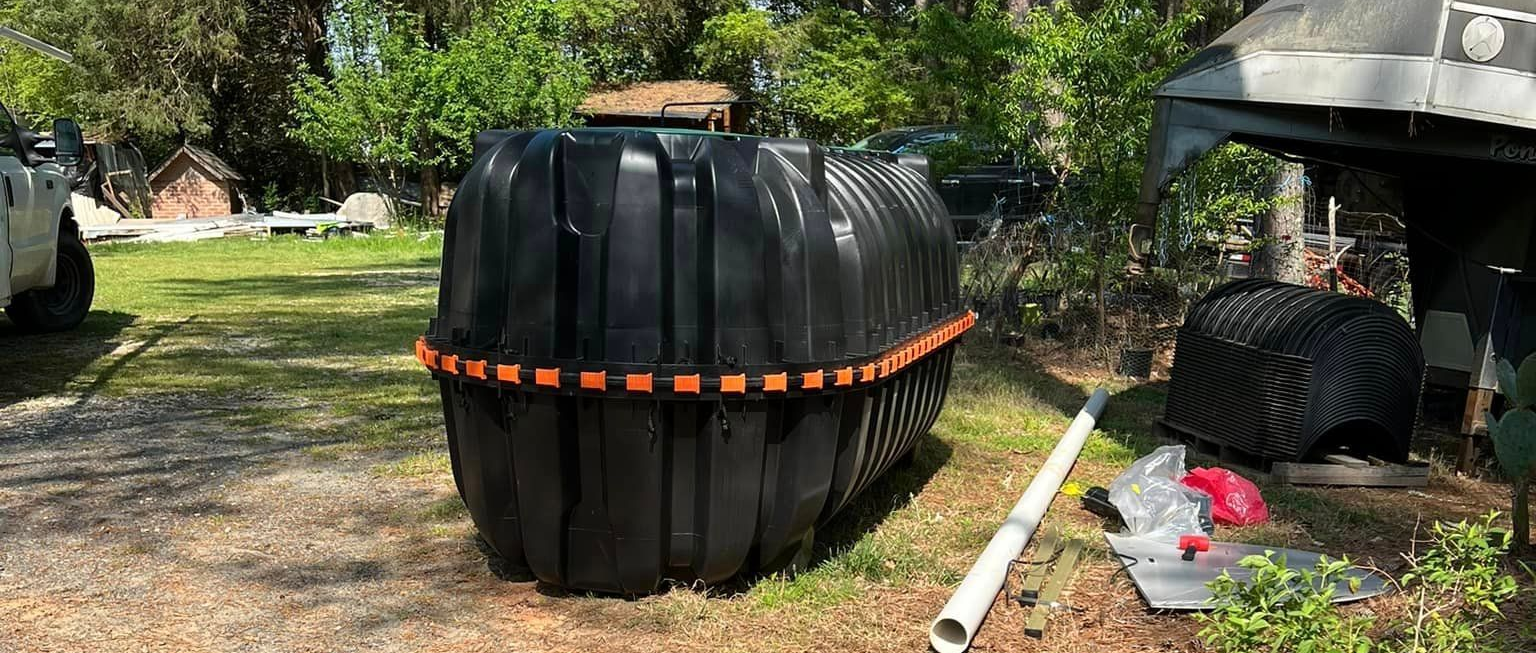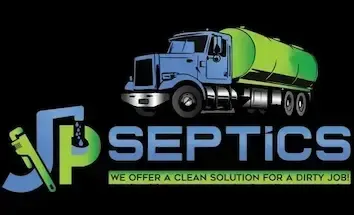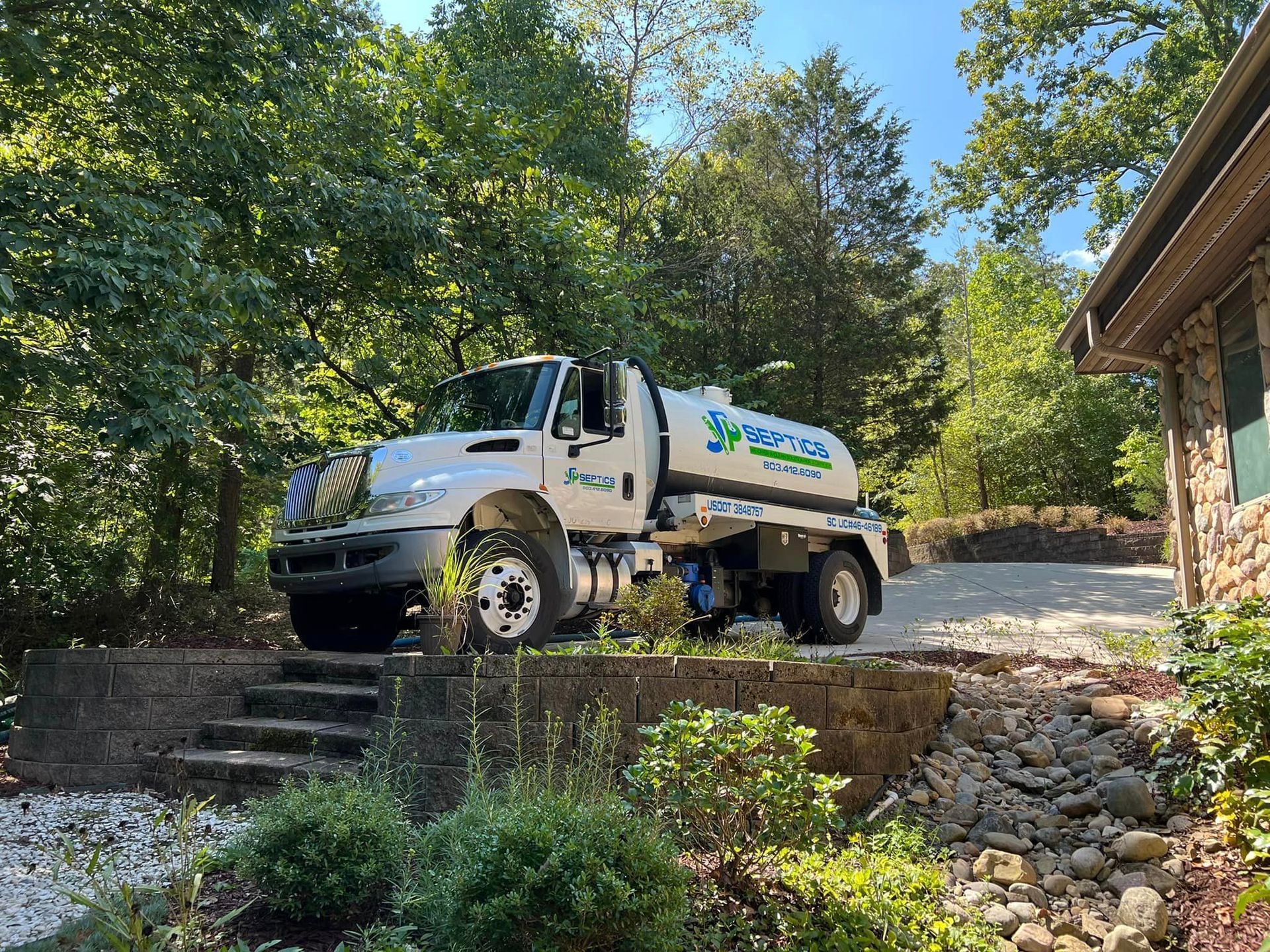Welcome to the Neighborhood: A Homeowner's Guide to Septic Systems in Rock Hill, SC
Welcome to Rock Hill! Whether you're moving across town or across the country, settling into a new home is an exciting time. Amidst all the unpacking and exploring, you may have discovered that your new property comes with something you've never dealt with before: a septic system.
If you're feeling a little unsure about what that means, you are not alone. A septic system can seem mysterious, but it's actually a straightforward and incredibly effective piece of technology.
At JP Septics, we're your local, family-owned experts, and we believe knowledge is power. This guide will demystify your new system and give you the confidence to manage it like a pro.

So, What Exactly is a Septic System?
Think of your septic system as your own personal, on-site wastewater treatment plant. It’s a self-contained system that safely treats and disposes of all the wastewater your house produces—from toilets and showers to sinks and washing machines. Every system has two main components:
- The Septic Tank: This is a large, buried, watertight container (usually made of concrete or plastic). When wastewater enters the tank, solid waste settles to the bottom (sludge) and lighter materials like grease float to the top (scum). The liquid wastewater in the middle flows out to the next part of the system.
- The Drain Field (or Leach Field): This is a series of underground, perforated pipes laid in trenches of gravel. The liquid wastewater from the tank flows into these pipes and slowly "percolates" into the surrounding soil, where natural bacteria safely treat and filter it.
The 3 Golden Rules of Septic System Ownership
Your septic system is robust, but it isn't a magic black box. Following these three simple rules will prevent the vast majority of problems and ensure your system has a long, healthy life.
1. Have It Pumped Regularly
Over time, the sludge and scum layers in your tank build up. If they get too thick, they can flow out and clog your drain field—leading to a messy, expensive failure.
- The Rule: For most homes here in the Rock Hill area, you should have your septic tank professionally pumped every 3 to 5 years. This removes the built-up solids and is the single most important piece of maintenance you can perform.
2. Be Kind to Your Drains
Your septic system is a living ecosystem that relies on bacteria to break down waste. What you put down your drains directly affects its health.
- The Rule: The toilet is only for human waste and toilet paper. Never flush or pour these items down your drains:
- "Flushable" wipes (they don't break down)
- Feminine hygiene products
- Cooking grease or coffee grounds
- Harsh chemical drain cleaners or paint
3. Protect Your Drain Field
The drain field is the most expensive part of your system. Protecting the ground above it is crucial for its function.
- The Rule: The only thing that should be over your drain field is grass.
- Do not park cars or heavy equipment on it. The weight can crush the pipes.
- Do not plant trees or large shrubs near it. The roots can invade and clog the pipes.
- Do not build a shed, deck, or pool over it.
Warning Signs to Watch For
A healthy septic system gives no signs that it's even there. If you notice any of the following, it's time to call a professional:
- Foul Odors: Smelling sewage or "rotten eggs" in your yard, especially near the tank or drain field.
- Slow Drains: Sinks, toilets, and showers are draining slowly throughout your entire house.
- Gurgling Sounds: You hear gurgling noises from your pipes after flushing a toilet or draining a sink.
- Lush Green Patches: You notice an unusually green, spongy patch of grass over your drain field.
- Sewage Backup: This is an emergency. You see sewage backing up into the drains in your home.
You're Not Alone—We're Here to Help!
Owning a home with a septic system isn't complicated, and it's a very common and reliable way of life here in York County. Now that you know the basics, you're already on the right track.
The team at JP Septics is always here to be your trusted partner. Whether you need to schedule your first pumping, have a few more questions, or just want to know where your tank is located, give us a call. We're happy to help you settle in.
Is Your Tank Due for a Check-up?
If you aren't sure when the last time your tank was pumped, don't risk a backup. We serve all of York County.



